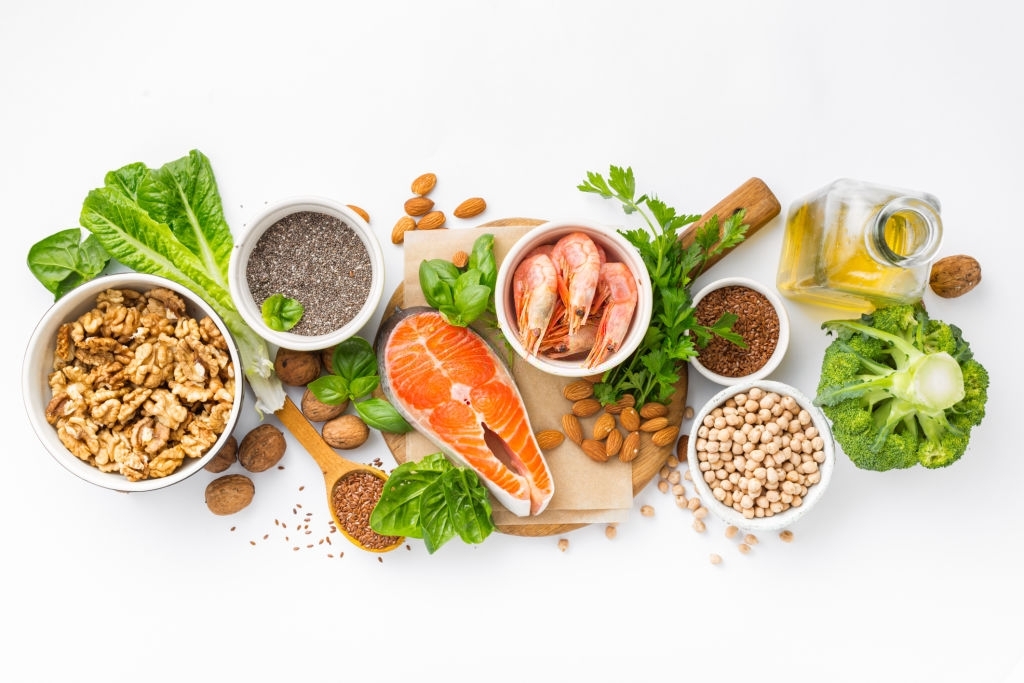Lipids are fats made up of carbon, hydrogen and oxygen atoms and provide the form of energy most easily stored by the body. Lipids are essential for the proper functioning of our cells and the nervous system.
Focus on the lipid categories:
- Saturated Fatty Acids (SFA), known as “bad fats”:
These are mainly animal fats and certain vegetable fats (palm oil).
- Unsaturated Fatty Acids:
- Monounsaturated Fatty Acids (MUFA)
- Oleic acid or omega 9 (olive oil)
- Polyunsaturated Fatty Acids (PUFA)
- Linoleic acid, omega 6 and derivatives, alpha-linoleic acid, omega 3 and derivatives (fatty fish)
- “Trans” hydrogenated fatty acids (refined oils and margarines)
- Monounsaturated Fatty Acids (MUFA)
Fat catchers or prickly pears can help with a dietary gap. Be careful, as part of a slimming diet, you should never take a fat binder in the morning! Indeed, it could be dangerous because our brain needs lipid in the morning to function properly.
The role of fatty acids in the body:
Fatty acids are a source of energy for the body, like carbohydrates. They are stored in the form of triglycerides in the tissues, which the body uses during prolonged exertion (energy in the form of ATP). Fatty acids also play an essential role in the brain and retina. Namely, the membranes are 90% phospholipids.
Fatty acids are more difficult to transform than glucose, being oxidized in the heart of cells (in the mitochondria) of the liver, heart, kidneys, muscles and brain.
Lipids therefore play a role in the structure of cell membranes. They are found in very large quantities in nerve cells and they constitute more than half of the part of the brain (70% of brain lipids are omega 3). At the heart of cells, in the mitochondria, lipids participate in the production of sex hormones. The body cannot synthesize lipids. They therefore all come from our diet.
Some fatty acids, called essential, must be provided by the diet because they cannot be synthesized by the body:
- Linoleic acid, precursors of Omega 6 fatty acids
- Alpha-linoleic acid, precursors of Omega 3 fatty acids
To transform the lipid food into nutrient, it is the D6-desaturase enzyme which will indeed play a role in the biotransformation of omega 3 into DHA or EPA and omega 6 precursors of the arachidonic cascade playing an important role in the ‘inflammation.
Seniors and diabetics no longer have desaturase and no longer metabolize omega 6 and 3. It is therefore essential to supplement them with DHA or EPA in order to avoid any inflammatory or cerebral affections.
The role of Omega 3:
Also known as polyunsaturated fatty acids, omega 3 is involved in the structure of cell membranes, in the functioning of the cardiovascular system, brain, hormonal system, neurons and supporting nervous tissue, as well as in many syntheses, in particular prostaglandins and leukotrienes.
It is naturally found in large amounts in oils and linseeds, walnuts, hemp, soybeans, rapeseed, but also in wild oily fish (tuna, sardines, salmon, halibut, mackerel, herring, as well as in animal fats and butter).
When we talk about additional intake of omega 3 in our diet, it is mainly EPA and DHA.
- DHA:
Omega 3 DHA are constituents of nerve cells and play an important role in the structure of membranes. They contribute to synaptic transmission and are also involved in the development and function of the brain and retina.
DHA is more particularly involved in memorization functions. It participates in particular in the transmission of the nervous signal. A study in 12,000 men and women showed a correlation between the consumption of DHA on the plate and a less reduction in cognitive performance.
DHA is involved in the development of the nervous system and the retina of the baby. It is stored in the baby’s fatty tissue to complete brain development after birth. It is therefore advisable to increase your consumption of Omega 3 during pregnancy.
- EPA:
Omega 3s are the precursors of anti-inflammatory substances which are part of the prostaglandin family. Eicosapentaenoic acid (EPA) transforms into PGE3 (prostaglandins E3) whose anti-inflammatory effects could be of interest in the treatment of inflammatory diseases: arthritis, osteoarthritis, chronic inflammation …
The close relationship between omega 3 and proper functioning of the cardiovascular system is now recognized.
The role of Omega 6:
Omega 6s are necessary for many physiological functions of the body and their protective role against cardiovascular disease is well known.
Abnormally high levels of blood lipids such as LDL cholesterol are major risk factors for atherosclerosis and cardiovascular disease.
These risks can be reduced by dietary intervention and, in particular, by changing the lipid composition of the diet. Indeed, a decrease in nutritional intake of AGS (saturated fatty acids) can lead to a significant drop in plasma LDL levels. Diets rich in PUFA are well known for their cholesterol lowering action. When the proportion of dietary AGS remains constant and omega 6 replace carbohydrates, there is a decrease in plasma LDL values.
The substitution in the diet of AGS by PUFAs, which are predominantly omega 6, has been shown to be effective in also reducing the plasma concentration of total cholesterol.
Some naturopathic advice:
- Prefer oils rich in mono and poly unsaturated fatty acids (omega 3, 6 and 9), and check that they are virgin and from first cold pressing (rapeseed oil, olive, walnut, hazelnut, sprouts wheat …)
- Eat fatty fish (sardines, mackerel, red mullet, salmon or tuna). Remember to check that they come from a fair fishery.
- Be careful, oily fish are also those that contain the most heavy metals. Choose them small and don’t consume them too often.
- To avoid :
- Sunflower and soybean oil
- Fatty meats (difficult to digest)
- Industrial dairy and cheese (prefer local producers)
- Margarines
- Lipids are essential for life (brain, cells, inflammation), they must not be removed!
- Avoid animal fats but prefer omega 3 and 6
- Saturated Fatty Acids are to be avoided in the evening.
Daily lipid recommendation:
- Olive oil 1 tbsp. tablespoons per day and rapeseed oil 1 tbsp. tablespoons per day (or 1 teaspoon per day of camelina oil)
- 500g of fish 3 times a week (when you eat fatty fish, prefer to eat it in the evening)A
- handful of oilseeds per day at 4 p.m.
We recommend that you do a blood test once a year in agreement with the attending physician. On your blood test, we will especially monitor HDL (good cholesterol), LDL (bad cholesterol) as well as the level of triglycerides. If the latter is high, it may indicate an excess of junk food or alcohol.







